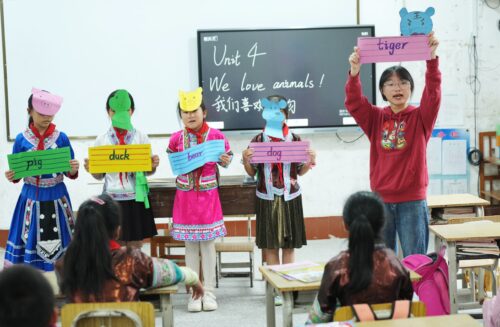Chinese college comes under fire for rejecting student over visual disability
Despite notable progress in recent years, students with disabilities still face many obstacles in their pursuit of higher education.

A Chinese university has been lambasted after a blind woman was reportedly denied the opportunity to take its graduate school entrance exams, leading to calls for fairer treatment of students with disabilities in college admissions.
Wú Xiāo 吴潇 is currently a senior at Nanjing Normal University of Special Education (NNUSE) studying applied psychology. She lost her eyesight at the age of 8 and has been reading braille since then. She has been applying for graduate school but has run into some old prejudices: Administrators at Shaanxi Normal University told her that she was disqualified to file her application due to her visual impairment.
Per Red Star News (in Chinese), Wu first contacted the school in mid-September, hoping to advance her studies at the psychology department of SNNU. Wu explained her visual condition to the staff at the admission office, while making what she called “reasonable requests” to ensure her equal access to related exams.
After almost a month of back-and-forth emails and ignored calls from Wu, the 24-year-old received an official message of rejection in late October. “None of our graduate programs is a good match for you considering your special situation. We also lack the resources to provide the accommodation that you asked for,” read a text message from the university’s admission office.
Feeling mistreated, Wu tried to take the issue up with the Shaanxi Education Examinations Authority, which oversees college admissions in the area. But because SNNU refused to issue a formal letter explaining their reasons for the decision, Wu’s complaint went nowhere.
Living with blindness, Wu has overcome many obstacles in her journey to get an education. Since China started offering a braille version of its national college entrance exam in 2014, Wu was the first and only blind student in Shaanxi to participate in the test and get admitted to a university.
In an interview with the Paper.cn (in Chinese), Wu said that with the help of assistive technologies — such as screen readers and braille-related devices, she encountered no major challenges during her time as an undergrad. Calling SNNU’s rejection a “massive letdown,” Wu said, “I want nothing but an opportunity to compete fairly.”
When contacted by a reporter with Red Star News, a school official at SNNU pointed to a set of guidelines issued by the Chinese Ministry of Education in 2003, which stipulate that people with visual impairments are “unsuited” for a host of college majors, including psychology, biological engineering, and environmental science. Noting that students majoring in applied psychology need to “observe people’s emotions and moves in experiments,” the official said, “How could she keep up with her studies when she’s blind?”
However, Wu found SNNU’s explanation unacceptable, saying that she knew examples of people with visual disabilities who enrolled in graduate programs in Chinese universities. Meanwhile, advocates for disability rights have argued (in Chinese) that because Chinese schools are required to provide “reasonable accommodation” for disabled students in national exams — according to China’s Regulations of Education of Persons with Disabilities, it may be illegal for SNNU to reject Wu’s application on the grounds of her visual condition.
So far, SNNU hasn’t changed its stance, but Wu said she had no time to dwell on the setback. Over the weekend, she told the China Youth Daily (in Chinese) that she had applied to Central China Normal University instead.
SNNU’s decision has drawn intense criticism on Chinese social media, especially from people in the disabled community, who slammed the school for making higher education inaccessible to students with disabilities. Many also vencouraged Wu to take legal action against what they called “blatant injustice.”
However, not all the responses Wu received were positive. “One has to be aware of one’s physical limitations before choosing a career,” a Weibo user said. Some came to the SNNU’s defense, saying that Wu would be a “burden” to the school if she got admitted.
China is home to more than 85 million of people who identify themselves as living with disabilities, of which more than 17.5 million are visually impaired. Despite its sizable population, the disabled community faces barriers and struggles for equality in many aspects of life, including education, work, and even daily commuting.






